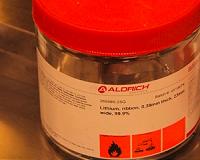 |
San Francisco (AFP) April 12, 2011 IBM is testing smartphone software designed to predict traffic jams and warn motorists before they even take to the roads. IBM said late Tuesday that its employees in the San Francisco and Silicon Valley areas of Northern California have been testing technology that "will ultimately help drivers around the world" avoid fouled traffic. Those involved in the pilot project agree to have location-sensing capabilities in their smartphones automatically track where they drive and when, according to IBM Smarter Traveler program manager John Day. The information is fed through the Internet to computers that identify patterns such as commutes to and from work. Meanwhile, data collected from roadway censors commonly used for online traffic maps is analyzed to determine conditions that usually lead to trouble. For example, congestion at a certain off-ramp or bridge entrance may consistently lead to traffic backing up in another area. The results are combined to form personalized predictions of when a motorist is apt to run into highway headaches. "We wanted to take advantage of analytic tools to provide predictive capabilities; to get correlations with minor slowdowns and major ones that happen after that," Day told AFP. "So you can run a query at any point for a journey and predict 35 or 40 minutes in advance what it will look like, then couple that with a personal approach for the individual traveler." IBM researchers worked with California state highway authorities and a Mobile Millennium Team at the University of Berkeley, California, on the project. The smartphone application lets people receive customized alerts warning of probable traffic trouble before they set out on commutes or other routine drives. The service is powered by a "first-of-its-kind learning and predictive analytics tool" called the Traffic Prediction Tool (TPT) developed by IBM Research. TPT continuously analyzes congestion data, commuter locations and expected travel start times throughout a metropolitan region that can affect commuters on highways, rail-lines and urban roads. "The idea is to learn a traveler's habits, then run it on the predictive model to see what traffic they can expect," Day said. "The objective was to make it much more personal and provide it to them just before they were about to leave." IBM researchers envision integrating real-time data from bus or train systems into the equation so the service could advise people when it would be smarter to divert to public transit. Privacy protections included obscuring start and end points of trips as well as letting people manage their travel data online. The pilot project has been going on for about five months. "The predictive capabilities are head and shoulders above what exists today," Day said. "Everything out there is showing you traffic as reported five or 10 minutes ago. Nobody does predictive." While testing is in California, IBM is intent on building a system that can work around the world. "Unlike existing traffic alert solutions, we're helping take the guesswork out of commuting," said Stefan Nusser of IBM Almaden Services Research.
Share This Article With Planet Earth
Related Links Car Technology at SpaceMart.com
 Research Into Batteries Will Give Electric Cars The Same Range As Petrol Cars
Research Into Batteries Will Give Electric Cars The Same Range As Petrol CarsRoskilde, Denmark (SPX) Apr 11, 2011 Li-air batteries are a promising opportunity for electric cars. "If we succeed in developing this technology, we are facing the ultimate break-through for electric cars, because in practice, the energy density of Li-air batteries will be comparable to that of petrol and diesel, if you take into account that a combustion engine only has an efficiency of around 30 per cent," says Tejs Vegge, senio ... read more |
|
| The content herein, unless otherwise known to be public domain, are Copyright 1995-2010 - SpaceDaily. AFP and UPI Wire Stories are copyright Agence France-Presse and United Press International. ESA Portal Reports are copyright European Space Agency. All NASA sourced material is public domain. Additional copyrights may apply in whole or part to other bona fide parties. Advertising does not imply endorsement,agreement or approval of any opinions, statements or information provided by SpaceDaily on any Web page published or hosted by SpaceDaily. Privacy Statement |